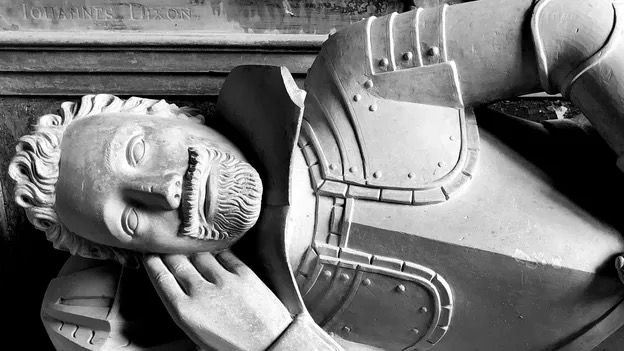Getting to Grips with a Medieval Christmas
- Templar Webmaster

- Nov 25, 2020
- 3 min read
What was Christmas like eight centuries ago? And did it resemble our modern Christmas?

The term “Christmas” first became part of the English language in the 11th century as an amalgamation of the Old English expression “Christes Maesse”, meaning “Festival of Christ”, but the influences for this winter celebration pre-date this time significantly.
Winter festivals have been a popular fixture of many cultures throughout the centuries. A celebration in expectation of better weather and longer days as spring approached, coupled with more time to actually celebrate and take stock of the year because there was less agricultural work to be completed in the winter months, has made this time of year a popular party season for centuries.
Whilst mostly synonymous with Christians as the holiday commemorating the birth of Jesus, celebrating on the 25th December was a tradition that was borrowed, rather than invented, by the Christian faith and is still celebrated by Christians and non-Christians alike today.
For example; the Roman celebration of Saturnalia, in honour of Saturn the Harvest God, and the Scandinavian festival of Yule and other Pagan festivals centred on the Winter Solstice were celebrated on or around this date. And, since Northern Europe was the last part of the continent to embrace Christianity pagan traditions of old had a big influence on the Christian Christmas celebrations. Many of which we still celebrate today.
The official date of the birth of Christ is notably absent from the Bible and has always been hotly contested.
Following the instigation of Christianity as the official religion of the Roman Empire in the latter part of the 4th century, it was Pope Julius I who eventually settled on 25 December. Whilst this would tie in with the suggestions of the 3rd century historian Sextus Julius Africanus that Jesus was conceived on the spring equinox of 25 March, the choice has also been seen as an effort to ‘Christianise’ the pagan winter festivals that also fell on this date.
Early Christian writers suggested that the date of the solstice was chosen for the Christmas celebrations because this is the day that the sun reversed the direction of its cycle from south to north, connecting the birth of Jesus to the ‘rebirth’ of the sun (or Son).
In the Early Middle Ages, Christmas was not as popular as Epiphany on 6 January, the celebration of the visit from the three kings or wise men, the Magi, to the baby Jesus bearing gifts of gold, frankincense and myrrh. Indeed, Christmas was not originally seen as a time for fun and frolics but an opportunity for quiet prayer and reflection during a special mass. But by the High Middle Ages (1000-1300) Christmas had become the most prominent religious celebration in Europe, signalling the beginning of Christmastide, or the Twelve Days of Christmas as they are more commonly known today.
If you think people are starting Christmas too early this year you should spare a thought for our medieval ancestors, because the medieval calendar became dominated by Christmas events starting forty days (yes... 40 days!) prior to Christmas Day, the period we now know as Advent (from the Latin word adventus meaning “coming”) but which was originally known as the “forty days of St. Martin” because it began on 11 November, the feast day of St Martin of Tours.
Interestingly, many monarchs have chosen this merry day for their coronation. This included William the Conqueror, whose coronation on Christmas Day in 1066 incited so much cheering and merriment inside Westminster Abbey that the guards stationed outside believed the King was under attack and rushed to assist him, culminating in a riot that saw many killed and houses destroyed by fire.
Although gift giving at Christmas was temporarily banned by the Catholic Church in the Middle Ages due to its suspected pagan origins, it was soon popular again as the festive season in the Middle Ages became a time of excess dominated by a great feast, gifts for rich and poor and general indulgence in eating, drinking, dancing and singing.
Whilst the excitement and frivolities of Christmas make it easy to forget the more serious aspects of the festival, it can also be argued that the tradition started by the wise men with their gifts of gold, frankincense and myrrh continues today, although with perhaps slightly less exotic gifts!




Comments